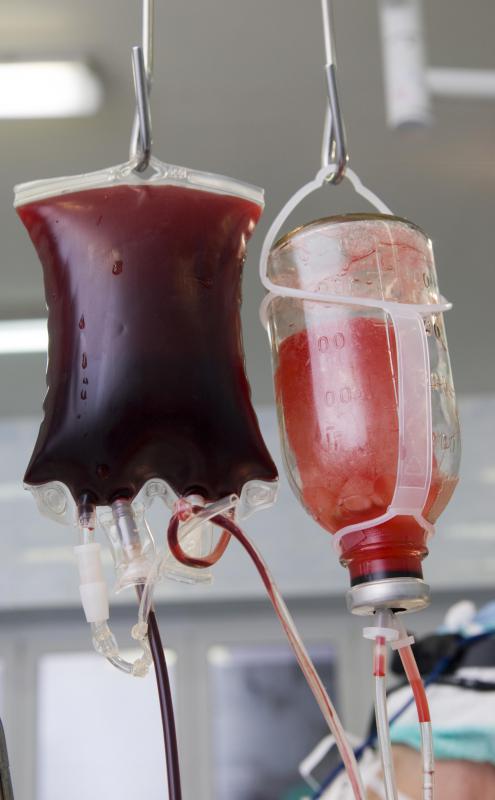At TheHealthBoard, we're committed to delivering accurate, trustworthy information. Our expert-authored content is rigorously fact-checked and sourced from credible authorities. Discover how we uphold the highest standards in providing you with reliable knowledge.
What Is the Difference between Bacteremia and Sepsis?
Even though bacteremia and sepsis are closely related, they are two separate conditions. The simple presence of bacteria in the blood is known as bacteremia. It may be transient, where small quantities of bacteria are in the blood for a limited period of time, or it can be sustained, where the bacteria persist and multiply in the bloodstream. The sustained form of bacteremia is usually what leads to sepsis, which is the body's immune response to the presence of the bacteria. This potentially fatal condition, sometimes referred to as blood poisoning, involves an inflammatory response by the entire body and is characterized by increased body temperature, heart rate, and respiratory rate, and in its severe form can lead to organ failure, extreme low blood pressure, or septic shock.
Bacteremia and sepsis do not necessarily both occur just because bacteria are introduced into the bloodstream. In cases where only a small amount of bacteria enters the blood, for example when bacteria in the mouth enters through the gums, the body may easily clear it with no negative results. These transient cases of bacteremia typically do not even cause symptoms.

When a person has large quantities of bacteria in the blood, or is in a situation where bacteria continue to be introduced for a period of time, he or she will often develop sustained bacteremia and sepsis is likely to follow. A situation where this might occur is when a person has surgery in an area like the intestines where large amounts of bacteria are present, and the incision allows them to move into his or her bloodstream. Once sepsis sets in, the person will typically experience systemic inflammatory response syndrome, or SIRS, a condition where inflammation is present throughout the body, causing increases in body temperature, heart rate, and respiratory rate, as well as a significant increase in white blood cells.

In severe cases, or if treatment is not given promptly, bacteremia and sepsis may progress to severe sepsis or even septic shock. Patients with severe sepsis may experience failure of organs such as the lungs, kidneys, or heart. They may develop hypotension, or extreme low blood pressure, and hypoperfusion, or decreased blood flow to the organs. If these conditions progress to the point that fluid resuscitation does not alleviate the hypotension, the patient may be considered to be in septic shock, which is extremely dangerous and often fatal.
AS FEATURED ON:
AS FEATURED ON:


















Discussion Comments
For symptoms of septicemia, link to it here in Wisegeek. See why it is as fatal now as it was 100 years ago, even though we have good drugs to fight it. People wait too long to get treatment, or are made to defer treatment by medical staff who miss the symptoms. It is dangerous, folks.
I survived, but have had 27 years of poor health. You are at risk after childbirth (especially a C-section) or if you have bowel surgery (or a bowel obstruction). I'm sure there are many other risk factors, but I'm not a doctor and could not state them here.
Post your comments